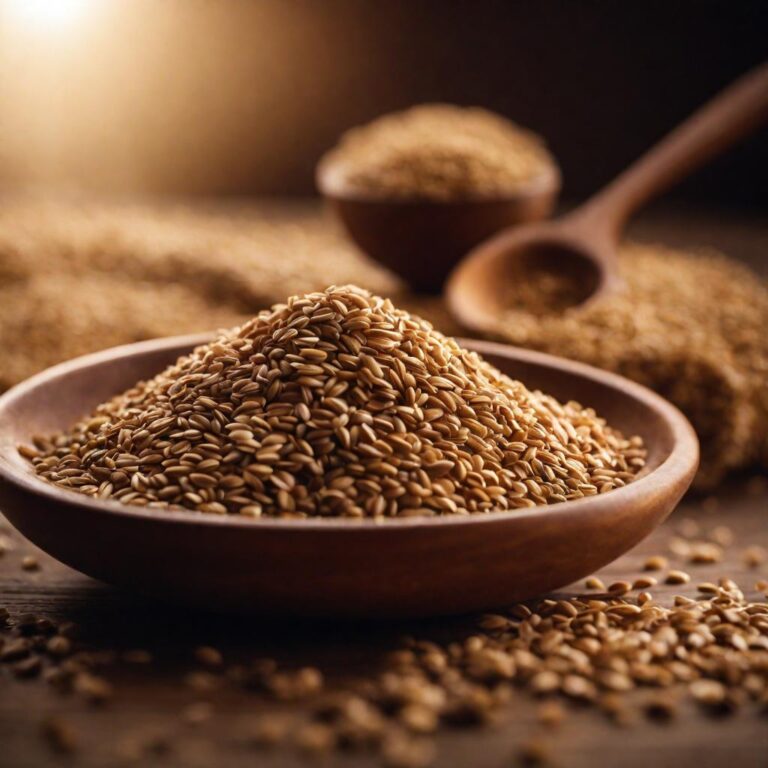Unearthed Secrets: Archaeological Evidence of Flaxseed Consumption in Canada
Archeological Evidence of Flaxseed Consumption in Canada
In the world of nutrition, flaxseed has gained significant attention for its potential health benefits, particularly due to its rich content of omega-3 fatty acids and lignans. But did you know that flaxseed consumption in Canada can be traced back through centuries? Archaeological evidence has shed light on the historical significance of flaxseed in Canadian diets and its role as a functional food. In this article, we delve into the captivating story of flaxseed in Canada, exploring its past, present, and potential future impact on health.

The Roots of Flaxseed in Canada
Flaxseed, scientifically known as Linum usitatissimum, belongs to the genus Linum and has been cultivated for thousands of years. Its history in Canada dates back to ancient times when indigenous populations relied on its nutritional properties. Archaeological excavations have uncovered remnants of flaxseed in various forms, such as whole flaxseed and flaxseed meal, providing evidence of its consumption by indigenous peoples in the region.
One of the oldest recorded uses of flaxseed in Canada is for its fiber content. Flax was cultivated for its strong and durable fibers, which were used in making textiles and clothing. These archaeological findings highlight the multifaceted role of flax in Canadian history, from its use as a source of dietary nourishment to its contribution to the textile industry.
Flaxseed as a Functional Food
Flaxseed is commonly known for its nutritional benefits, primarily attributed to its high content of alpha-linolenic acid (ALA), an omega-3 fatty acid. Research has shown that flaxseed may play a vital role in improving cardiovascular health, lowering blood pressure, and reducing the risk of certain diseases, including breast cancer. This is largely due to the presence of lignans in flaxseed, which have antioxidant properties and potential protective effects against cancer.
A systematic review and meta-analysis of randomized controlled trials published in the Journal of the American Oil found that flaxseed supplementation had a positive impact on several health parameters. These studies indicate that dietary supplementation with flaxseed can lead to lower body mass index, improved lipid profiles, and reduced inflammation, among other health benefits.
Uncovering the Archaeological Evidence
Archaeologists and researchers have meticulously examined archaeological sites across Canada, uncovering evidence of flaxseed consumption. Seeds of the flax plant, commonly known as flaxseed or linseed, have been discovered in ancient storage containers and dwelling sites, providing valuable insights into the diets and habits of past civilizations.
Furthermore, the extraction and evaluation of flaxseed residues from archaeological sites have revealed the persistence of flaxseed consumption over time. This evidence suggests that flax was not only cultivated for its fibers but also used as a dietary staple, indicating its importance in the diet of early Canadian inhabitants.
Flaxseed in Modern Nutrition
Today, flaxseed continues to be widely grown for its oil, known as linseed oil or flax oil. This oil is commonly used in cooking and as a dietary supplement, primarily due to its high content of ALA, making it an excellent source of omega-3 fatty acids. Ground flaxseed or flaxseed meal is also a popular dietary addition, known for its fiber content and nutritional benefits.
The Flax Council of Canada plays a pivotal role in promoting the consumption of flaxseed as a functional food. Their efforts are supported by a growing body of research that suggests that flaxseed consumption may have a positive impact on overall health and well-being. Whether consumed as whole flaxseed, ground flaxseed, or in the form of dietary supplements, flaxseed has become a staple in the modern diet, recognized for its potential to improve cardiovascular health, promote digestive health, and contribute to a balanced diet.
Conclusion
Archaeological evidence of flaxseed consumption in Canada paints a vivid picture of its historical significance and the enduring legacy of this remarkable superfood. From its use in textiles to its role as a dietary staple, flaxseed has left an indelible mark on Canadian history and nutrition. As modern research continues to unveil the health benefits of flaxseed, its place in our diets is only set to grow. So, next time you enjoy a flaxseed-enriched meal or supplement, remember that you are partaking in a tradition that stretches back through the annals of time – a tradition that celebrates the nutritional and functional wonders of flaxseed.


